I had the pleasure of connecting with the Alumni Association at the Ontario Institute for Studies in Education at the University of Toronto for a Q & A about Trust ahead of our webinar on November 17, 2020. Enjoyed answering the questions, and here's a snapshot of our interview:
Why is trust important?
Trust is a human feeling, and our brains are hardwired to trust others. We are naturally inclined to trust others, but that’s not to say that we always do. Rachel Botsman, Trust Fellow from Oxford University, describes trust as the currency of interactions (compared to money being the currency of transactions). This is incredibly powerful when we consider the interactions that we have on a day-to-day basis. Further to that, trust, social connectivity, and well-being are intertwined (and this is where the work that I am deeply passionate about intersects). It can be powerful for navigating uncertainty and times of change. We know that trust has always been important, but I’d suggest that it has never been more important than it is at this moment in time.
2. Let’s build on that. You believe that trust is in a state of crisis. Why do you think that is?
If you look at what is happening around the world, in our own backyard, and in our organizations, let’s be very real, trust is absolutely in a state of crisis. Whether we are discussing the response to pandemic by leaders and organizations, or what is and has been happening around the world, or politics, or the police, or journalism, or capitalism, or – and I can go on. Trust, and our relationship with it and with others, has been tested so deeply over the past eight months. We need leaders that we can trust – well, actually I’d challenge that, and say that we not only need leaders we can trust, we need to be able to trust the systems, policies, programs, initiatives, and each other. Right now, many of us don’t.
3. So, how do you build trust?
I’d suggest that it’s not a matter of building trust, because that assumes that we are in control. Trust is something that is given to you, it is earned. For leaders, the question isn’t, “How do we build trust?”, the question should be, “How do we earn trust?” Research has found ways to earn trust, and that’s what we will explore in our webinar, in addition to how we can lead and manage for trust. I do want to share the importance of small, consistent actions over time, and that there is a direct connection between vulnerability and trust. When we dismiss vulnerability, this can destroy trust over time. We’ll spend time on this, and we will also examine the misperceptions of trust. For example, more transparency doesn’t actually equate to more trust, instead, it reduces the need for trust. There’s a huge difference between the two. I’m looking forward to exploring this further.
4. How does well-being and emotional intelligence play a role in this?
This is where my heart is. I’ve spent the last eight months vocalizing the importance of focusing on the echo pandemic we are experiencing as it relates to well-being (our mental, emotional, and physical health). The impact of what we have experienced this year alone is going to be lasting. For years, I’ve discussed the importance of developing our emotional intelligence (EI) and resilience, and just this month I launched our online course Emotional Intelligence for Professionals, which has been incredibly well-received. When we think about EI and well-being, there are strategies that we can use to help navigate times of uncertainty, challenges, and changes that we face. Examining these strategies helps to not only develop our EI, but it helps us to develop the foundation for self-trust. That’s not something we often talk about.
5. What don’t we often talk about?
Self-trust. Self-confidence. Self-criticism. This is where we need to start.
Join us on November 17, 2020 at 5:00 p.m. for our free webinar on Earning Trust. Link to register: https://events.r20.constantcontact.com/register/eventReg?oeidk=a07ehe6hptabfe3eef7&oseq=&c=&ch=
Dr. Rumeet Billan is an award-winning, internationally recognized entrepreneur, learning architect, speaker, author and humanitarian. Dr. Billan was named Canada’s Top 10 Power Women in 2020, and has been twice named one of Canada’s Top 100 Most Powerful Women. For details, visit www.rumeetbillan.com

